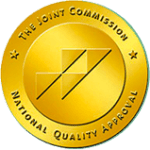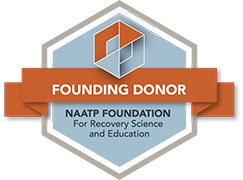How to Help a Loved One with Addiction
Addiction can be a long journey full of heart-break, frustration and learning. There’s a lot of advice out there for how to deal with a family member or loved one that is in the depths of addiction. Although there is a lot of good advice and people do mean well, there is also quite a bit of poor counsel to sift through. Here are a few helpful tips on what you can actually do to help a loved one who is dealing with addiction.
- Educate Yourself
Take the time to learn about the symptoms of drug or alcohol abuse and the signs to look for in someone dealing with addiction. Having some knowledge of addiction is beneficial for both you and your loved one, so you can be aware of what they’re dealing with, and how to recognize what’s happening. - Encourage Them to Get Help
Sometimes the most influential people in someone’s life are the people who love them the most. You can have a big impact on influencing or encouraging your loved one to get the help they need. The earlier addiction is treated, the better. You will probably be met with some resistance or denial when you confront them, but persistence is key in helping someone recognize their need for treatment. Don’t guilt or shame them into a decision though. It’s often helpful to hold an intervention for a loved one as well. Sometimes these can be more difficult, especially because they are direct and confrontational, but it may be what your loved one needs. There are intervention specialists that can help you with this process. - Offer Support
Remember, you are one of the greatest influences your loved has in their life. Oftentimes, addicts don’t understand how much their family and friends care about them. Tell your loved one how much you care, and that you’ll be there to support them throughout their journey to recovery. Don’t wait till they’re at their lowest point before saying something. Speak out when you recognize the signs. - Connect with Peers
It’s not easy to live with or support someone who has an addiction. It’s a stressful journey for all of those involved. It’s often helpful to connect with others who are going through the same thing. There are programs like Al-Anon or Alateen that provide a safe, nonjudgmental space for family members of addicts. - Take Care of YOU
Addiction is a journey, oftentimes a long one. It’s important to remember that while you’re supporting your loved one through this stressful time, you also take care of yourself. Get enough sleep, exercise and food, and remember to seek encouragement for yourself as you need it, so you can be there for your loved one when they need it too. - Manage Your Expectations
Addiction and the journey to recovery can take a long time. It’s always good to have hope, and while your loved one is dealing with their addiction issue, it’s important to be patient. People in recovery may make mistakes. They may need time to deal with the root issue of their addiction, or their own guilt. Remember to be patient, give them time to heal and recover, and take care of yourself. - What Not to Do
Don’t preach or lecture – your loved one doesn’t need to be shamed or guilt-tripped into a decision. It doesn’t work.
Don’t lie or make excuses for their behavior.
Don’t enable their behavior by covering up their abuse or giving them money to continue their habit.
Don’t argue with your loved one while they’re using alcohol or drugs.
Don’t feel guilty or responsible for their behavior. It’s not your fault.








